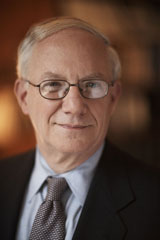Event Date

Michael Teitelbaum
Harvard Law School
The US has a long history of concerns about shortages of scientists and engineers, and the US government responded by subsidizing S&E or STEM education and R&D. More recent policy responses have included large increases in visas for S&E students and temporary foreign workers. Foreign students earn most of the PhDs awarded by US engineering schools, and they are a large share of PhD students and postdocs in the sciences. Foreigners in computer-related occupations receive half of H-1B visas, and they have been filling 20 to 25 percent of net new IT jobs in recent years. Michael Teitelbaum, author of Falling Behind? Boom, Bust, and the Global Race for Scientific Talent (Princeton, 2014), will discuss the demand for and supply of STEM workers has been shaped and reshaped by public policies since World War II. Teitelbaum is a demographer with long-standing interests in S&E issues as a vice-president of the Sloan Foundation. He served on several immigration commissions, including as vice-chair of the US Commission on Immigration Reform (Jordan Commission).
